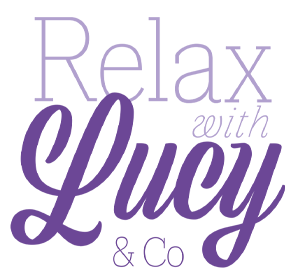Are You Relaxing?
Relaxation is often undervalued in the society we live in and it’s not uncommon for people to spend their whole life on 'fast forward mode'. When we relax, its not only great for our mental well-being but it also benefits our physical well-being.
Relaxation can be seen in many different forms such as 'formal relaxation' exercises, taking a bubble bath, reading and so on. Some people like to ‘relax’ on a Friday evening with a glass of wine, a takeaway and a film. Although this feels good to do at the time, this type of relaxation isn’t exactly true relaxation. To help you understand why Let’s look at this scenario in a little more detail.
In this scenario we have alcohol, food and television - we are going to look at each one individually to understand why each of these things alone are counter-productive to relaxation.
Alcohol
Many people use alcohol to ‘relax’ at the weekends or for some people during the week. Alcohol is a recognised stimulant and a sedative. So even when you drink alcohol it doesn’t really help your body relax, people just think it does because of its short-term sedative effects. When we consume alcohol, many physical reactions occur in the body, this means our body is working more than it needs to during the time we think we are relaxing. This further leads to poor sleep, which then has a snowball affect on the body leading to poor physical and mental wellbeing.
Take-out Food
Most of us from time to time enjoy eating takeout food. For many of us, having takeout is a ‘treat’, it’s a reward we give ourselves when we have had a real rubbish week and want to soothe ourselves. Its not uncommon for people to eat more food when ordering a takeout and often that takeout is in the form of high calorie curries or chinese dishes. When we eat in this way, our body again is having to work much harder than it needs to and is not getting an opportunity to relax at all. Quite often we will eat these large quantities of food late in the evening again leading to disrupted sleep as our bodies struggle to digest throughout the night.
Watching TV
Watching TV is not true relaxation. Watching TV is something that many of us do to pass time and to educate ourselves. However, watching the TV does not allow our minds to have some actual ‘down time’ as our minds are stimulated whilst it tries to process all it is absorbing. For some people they will also spend time whilst watching TV, playing on their phones and ‘pottering’ around the house. Again, not allowing the body and the mind to rest and have that true ‘down time’ it needs.
Everything in moderation is a good rule to follow, so if doing all the above is something you enjoy then don’t worry. It’s important to note however, that if this is a regular occurrence, then it may be beneficial to make some changes and try to build some activities that encourage true relaxation time.
There are many apps you can download to help with this if you don’t know where to start. A good app is an app called ‘insight timer’. This has a section that you can follow with many formal relaxation exercises that are anything from 5- 60 minutes in length. They are easy to build into your breaks at work or into an evening routine. It’s also important to ensure that before bedtime there is at least 45 minutes or more of ‘down time’. This means low lighting, no TV, no phones and ensuring the environment is as relaxed as possible. This will help to aid sleep and encourage more of a restful sleep.
Give it a try!
